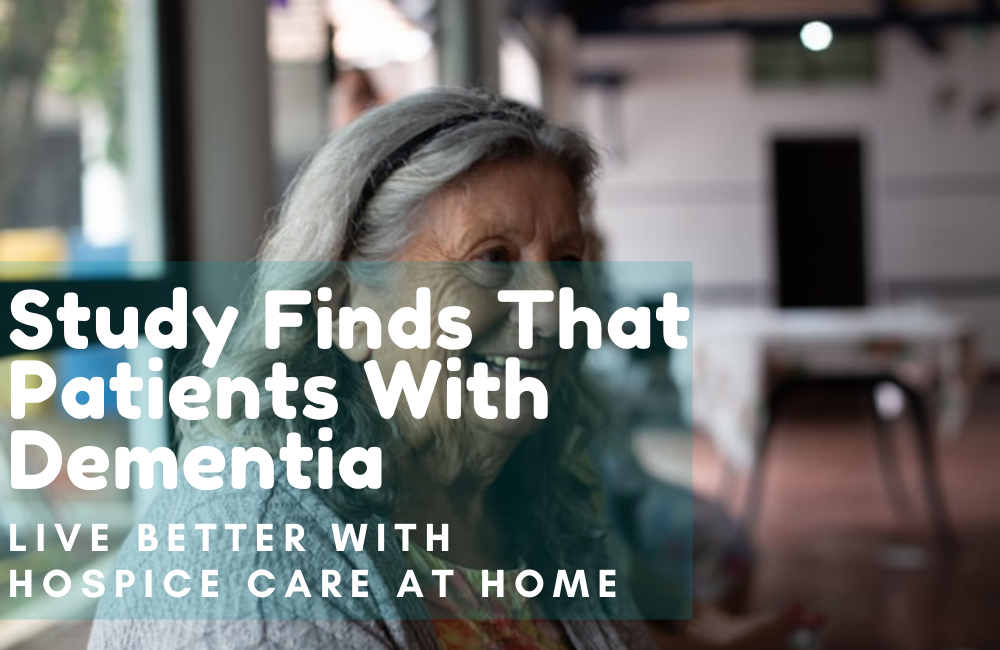According to a study published in the Journal of the American Geriatrics Society carried out by Dr. Elizabeth Luth and her team, patients with dementia live longer in hospice are at home than they do in nursing homes. It addresses the pervasive myth that choosing hospice care means giving up on life and moving faster towards death, offering more comfortable and familiar options for those in their golden years.
Hospice care at home does aim to lengthen or shorten life. It instead works to improve the patient’s quality of life, ensuring they enjoy the remaining years at home and with their loved ones. In addition to the study, other researchers have found that hospice care has shown more positive outcomes for these patients over the last two decades, as it extended their lives by days to months. These studies compared hospice care setups to patients receiving palliative care searching for a cure for their condition.
Survival Rates For Patients in Nursing Homes and Hospice Care
The above-mentioned study researchers analyzed the medical records of nearly 4,000 patients with dementia who were housed in nursing homes or hospice care. They adjusted the comparison models for clinical factors and the relevant demographic. They found that patients in nursing homes were 30 percent more likely to die within six months than patients in hospice care at home.
Hospice Care Patients Live Longer
Hospitals are equipped with round-the-clock care and the best lifesaving technology. However, patients rarely feel comfortable in these facilities. While their loved ones may believe that leaving the hospital would put them at risk of receiving a lower quality of care, hospice care at home helps patients feel at ease. Many hospice care providers equip homes with the technology needed to continue monitoring the patients’ vitals and give them the care they need while making them feel comfortable.
Additionally, according to various scientific research, when a person is expected to have only six or fewer months left, they live longer in hospice than in other healthcare setups, even when pursuing curative treatments or palliative care. For this reason, it is best to allow patients with dementia to live the rest of their days in hospice care at home, where they feel most relaxed.
How the Study Affects the Policy Implications Involved in Patients With Dementia
Dr. Luth and her team found that almost four out of ten patients with dementia were discharged from hospice alive or stayed for more than six months. Some of the discharges were because the patients transferred to a hospital, while others were hospice graduates. Although patients undoubtedly appreciate more time with loved ones, survival exceeding six months poses unexpected problems. For instance, Medicare rules dictate that only patients with a six-month life expectancy should be in hospice care at home. Doctors can often predict life expectancy within three months or when the prognosis is less than a year. The study suggests that dementia may be an exception to these rules.
Still, even though short hospice enrollment can be more expensive for Medicare than staying in hospice care for the long term, regulators pay extra attention to live discharges and long hospice enrollment. For this reason, Dr. Luth and her colleagues recommend that regulators change hospice guidelines to permit more extended hospice enrollment of patients with dementia to lengthen their lives and spend more time with their families.
Conclusion
Some believe that transferring their loved ones to hospice care at home means giving up on their chances of survival, but this couldn’t be further from the truth. Hospice care provides these patients with the care and technology they need to live longer and in comfort, reducing their stress and anxiety by putting them in familiar surroundings. By entrusting your loved one to the best home assisted living, you’ll ensure that their last months or years are their most peaceful.
Bridge Home Health & Hospice offers homecare services and licensed clinical support at home. Our staff is trained to manage symptoms primarily related to end-stage illnesses while attending to the patient’s nutritional and safety concerns. Contact us today to learn more about what we can do for your loved one.

